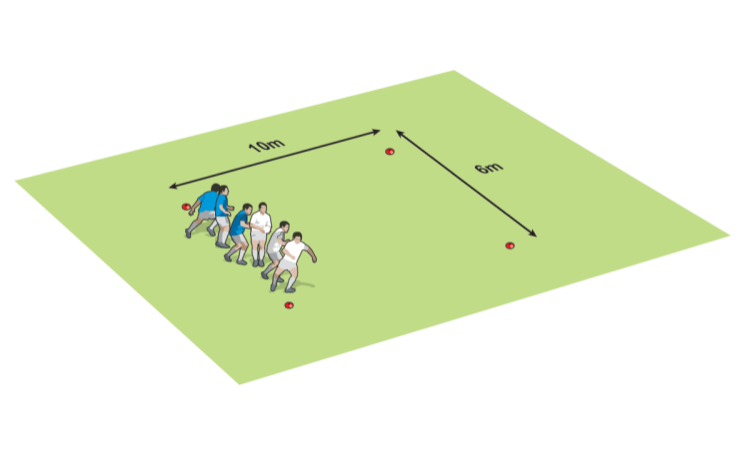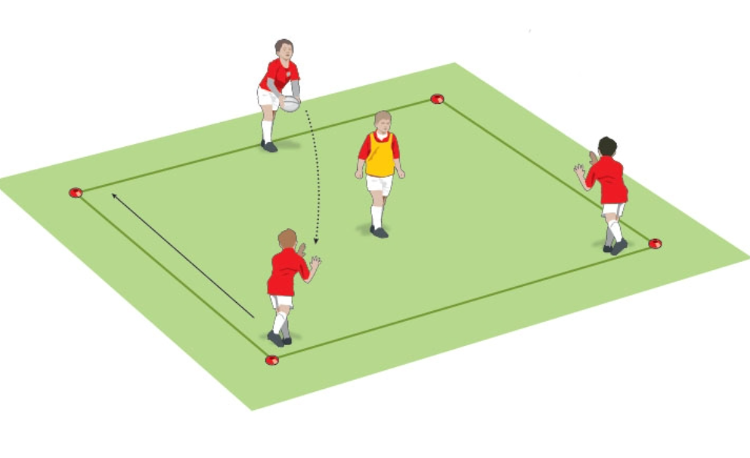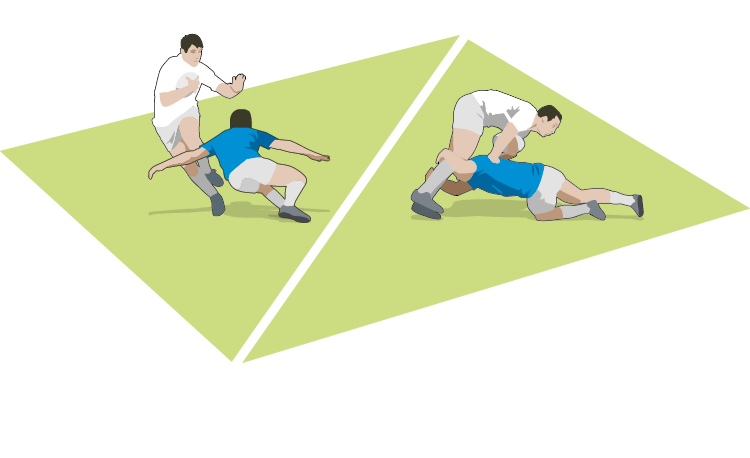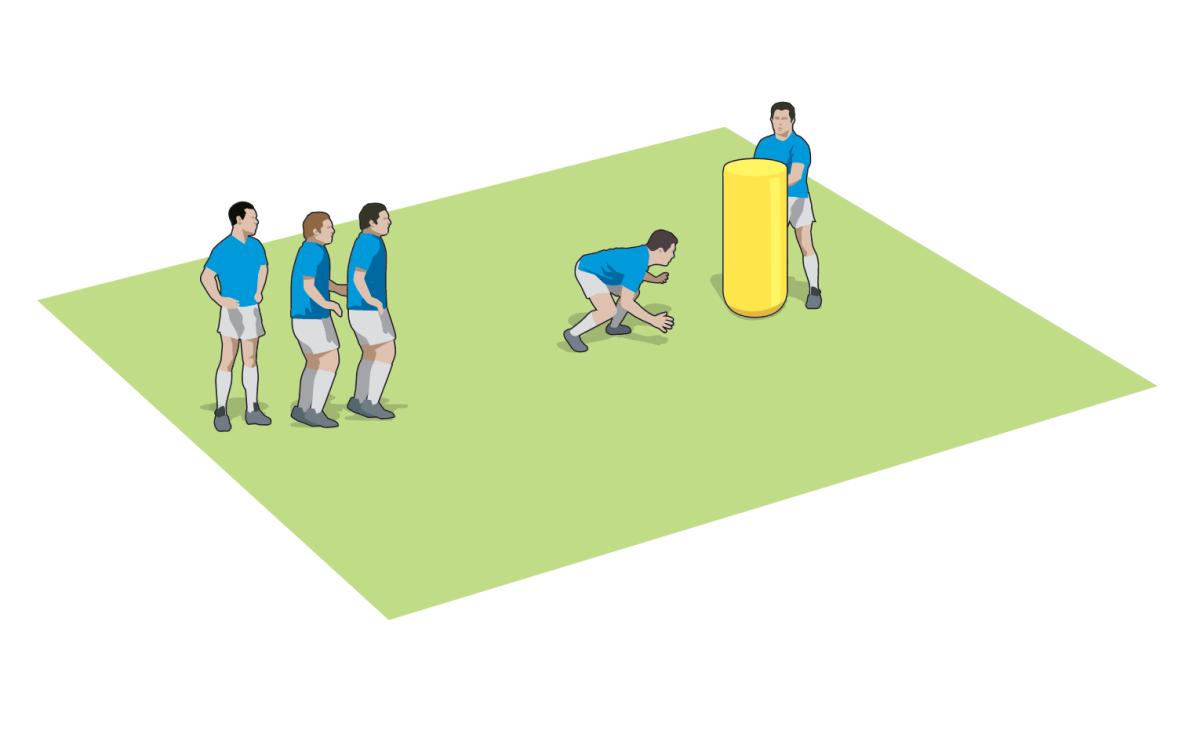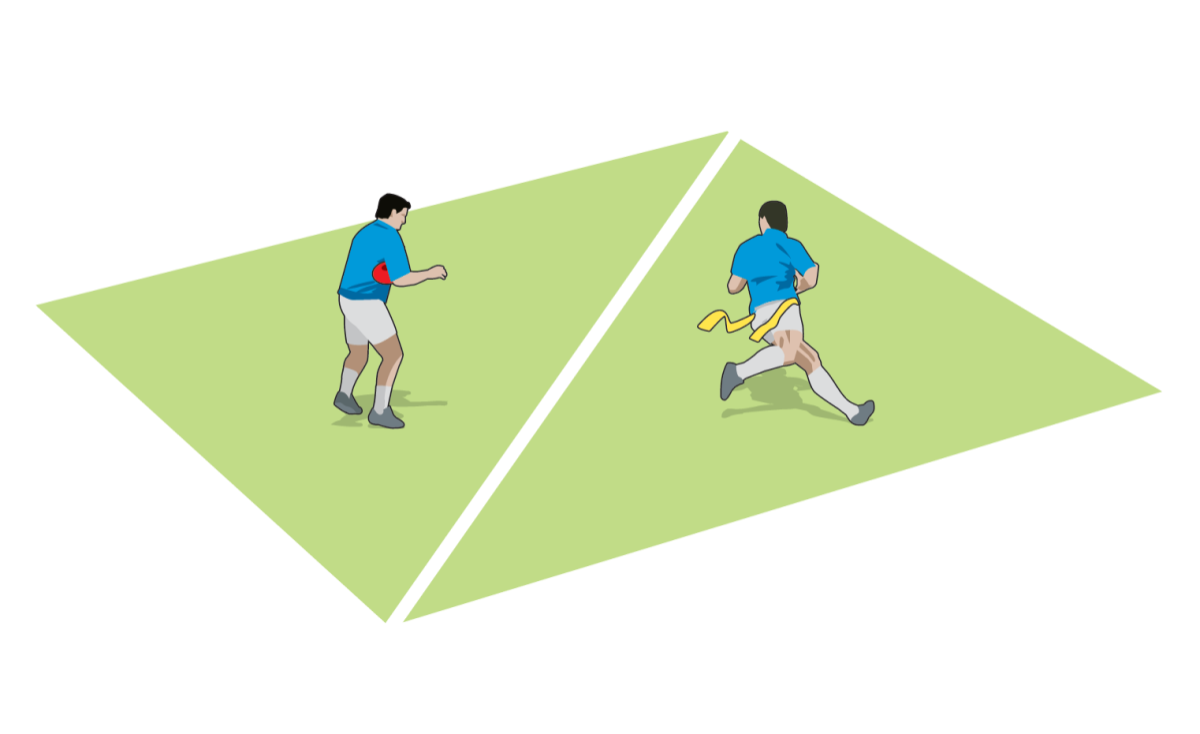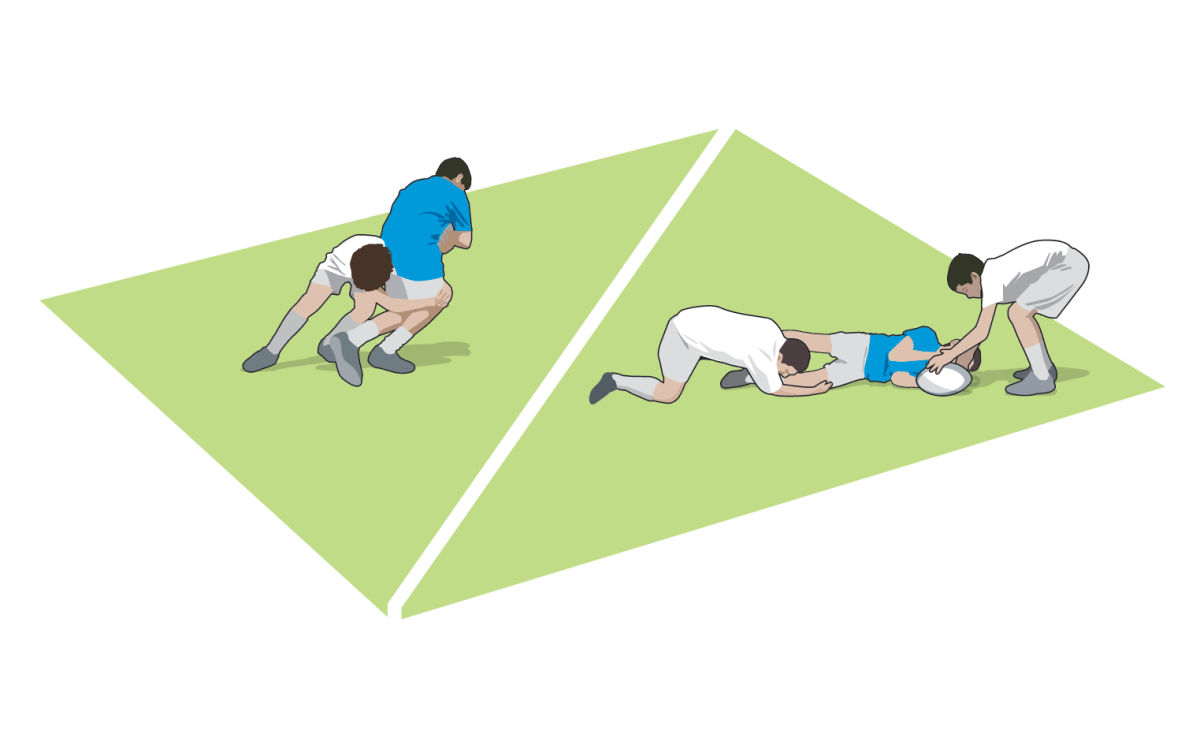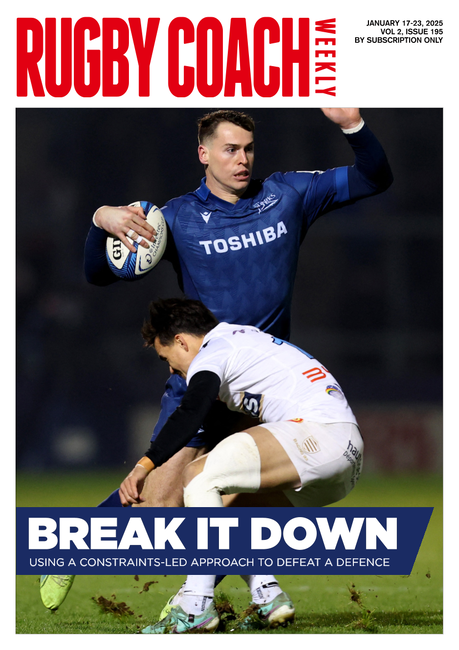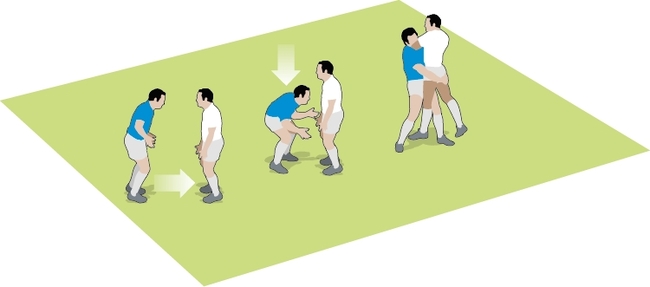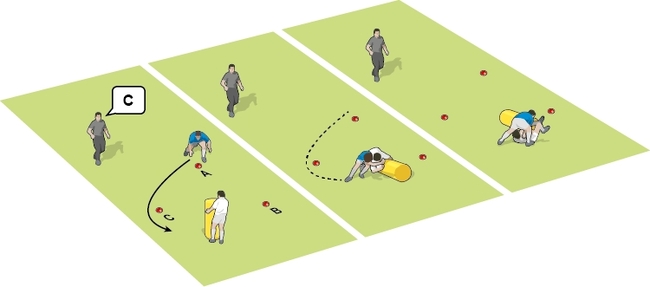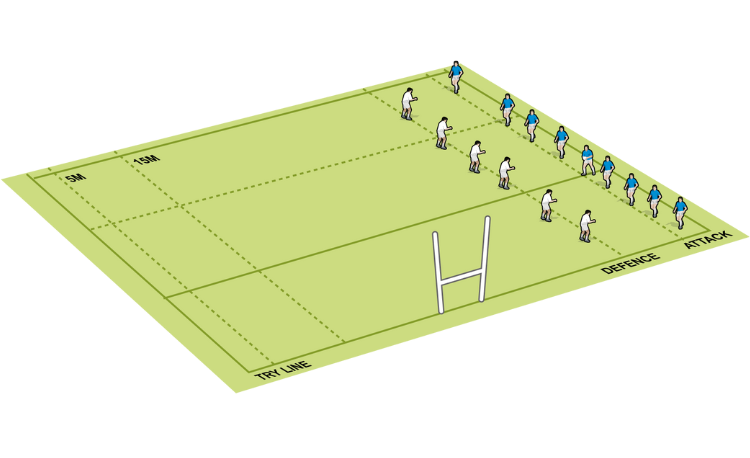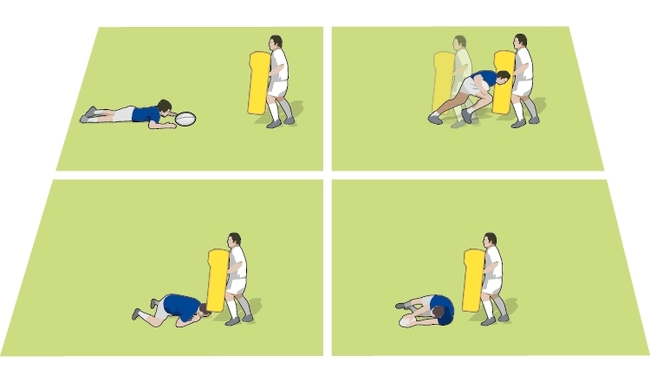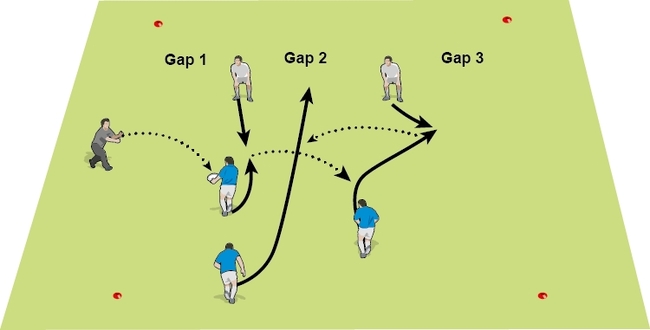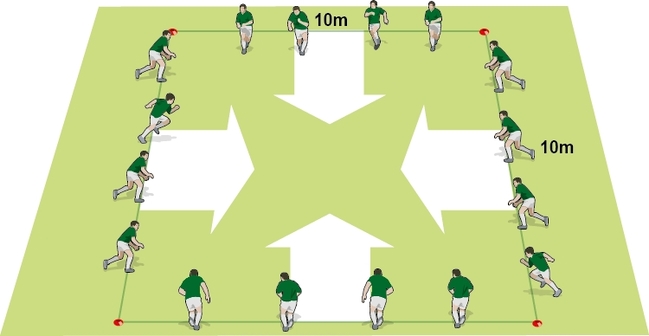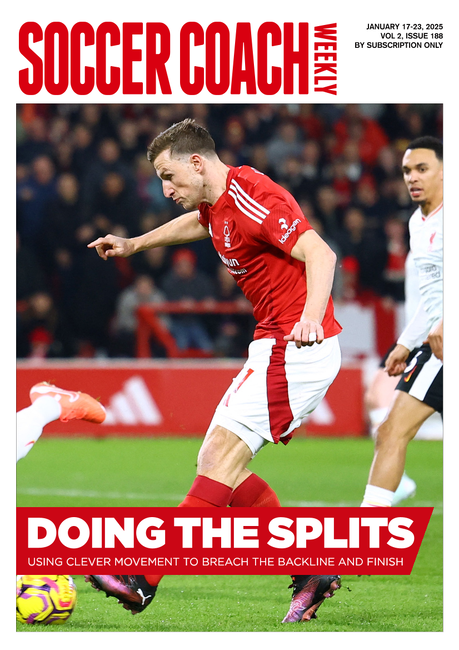Safe, effective tackles
Good technique needs practice – in the case of tackling, little and often. Former England Women’s coach GRAHAM SMITH has four ways to develop key skills.
KEY FACTORS FOR TACKLING
- Body height into the tackle
- Body shape through the collisions
- Tight connection with head and arms combined with leg drive
- Footwork
EXERCISE 1 - QUICKFIRE TACKLES
Players work in groups of four to five. One player holds a tackle tube up. The tackler, with a positive position, drives the pad forward and to ground. They get to their feet and pick up the tube. The next player repeats. This is a good exercise to develop the basic techniques. For extra conditioning ask the player to flip the pad over (roll).
- A line of players wait to take their turn
- A tackler starts only one step away from the tackle. They tackle, recover and then take over as tube-holder
- Look for: flat back, leg drive, tight grip
EXERCISE 2 - DEFENSIVE FOOTWORK: ALIGNMENT TO BALL CARRIER
Each player has bibs or cones held under their armpits, encouraging them to keep their arms and elbows tight to the body. Two players start as defenders in the middle of a box. The attackers run across the box, aiming to beat the defenders. The attacker becomes a defender if the defenders get a shoulder contact on the attacker. This ensures that the defender is getting their shoulder, hip and knee centred to the attacker.
EXERCISE 3 - DEFENSIVE FOOTWORK: STEALING BIBS/TAGS
Each player has two bibs positioned on their hips, in their shorts (tags can be used). The object of this game is to accumulate bibs; the winner has the most. All players start at the same time to run and snatch as many bibs as possible. You must have at least one bib on the hip to keep playing. Stolen bibs are kept in the hands.
Related Files
- The defender has cones under their arms to promote better footwork
- Each player has a bib on each hip. As long as the player has a bib, they can gather other bibs
MAKE PASSIVE TACKLES POSITIVE
We need to promote the ’long tackle’, which is a form of the passive tackle. This is a technically correct tackle that leaves the ball carrier prone, long over the shoulder of the tackler.
We can still encourage aggression, impact and leg drive to unbalance and disrupt the ball carrier. With a long tackle, the ball carrier ends up behind the tackler. In the meantime, the next defender is in over the ball straight away.
- A low, passive tackle with the ball carrier going over the shoulder of the tackler
- A quick defender can be over the ball
- The ball carrier is now nearer the defence than their own support
Newsletter Sign Up
Coaches Testimonials

Gerald Kearney, Downtown Las Vegas Soccer Club

Paul Butler, Florida, USA

Rick Shields, Springboro, USA

Tony Green, Pierrefonds Titans, Quebec, Canada
Subscribe Today
Be a more effective, more successful rugby coach
In a recent survey 89% of subscribers said Rugby Coach Weekly makes them more confident, 91% said Rugby Coach Weekly makes them a more effective coach and 93% said Rugby Coach Weekly makes them more inspired.
Get Weekly Inspiration
All the latest techniques and approaches
Rugby Coach Weekly offers proven and easy to use rugby drills, coaching sessions, practice plans, small-sided games, warm-ups, training tips and advice.
We've been at the cutting edge of rugby coaching since we launched in 2005, creating resources for the grassroots youth coach, following best practice from around the world and insights from the professional game.
